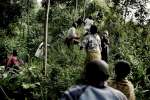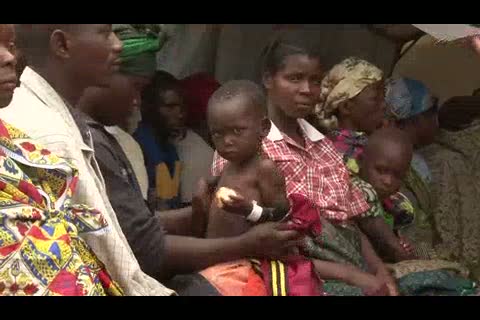UNHCR issues ID cards to Congo's refugees
News Stories, 22 November 2002

KIMAZA, Democratic Republic of the Congo, November 22 (UNHCR) – The UN refugee agency today started a massive operation to issue identity cards to refugees and asylum seekers in the Democratic Republic of the Congo (DRC) and the Republic of Congo (ROC), a move that could improve protection for some 440,000 people in the region.
Targeting all refugees and asylum seekers above the age of 14 in both countries, the joint effort between UNHCR and the two governments kicked off today in Kimaza, about 140 km west of the DRC's capital, Kinshasa. Some 2,000 refugees from the Republic of Congo currently hosted there will receive their ID cards in the next few days.
"It's important to have an identity document, particularly for security reasons. Not having an ID card means that a refugee can run into all kinds of problems and get questioned by the authorities," said Mohamed Dayri, Deputy Representative for Protection in UNHCR's regional office in Kinshasa.
"In the current regional situation where governments are becoming much more sensitive about security issues in their countries in relation to the presence of refugees, a joint registration programme with the governments will no doubt help to improve the legal protection of the refugees," he added.
In early December, the operation will move on to Pointe-Noire, ROC, before continuing in Lubumbashi, DRC.
Dayri said, "We would have hoped to have registered more refugees before the end of the year, but financial constraints forced us to limit the first phase of the operation to two host regions."
According to government estimates, there are some 440,000 refugees and asylum seekers in the two countries – 330,000 in the DRC and 110,000 in the ROC. Angolans make up the majority of them in both countries. There are also some 75,000 Sudanese and 22,000 Rwandans hosted in the DRC. Most of the refugees in the two countries are located in areas bordering on Angola and its Cabinda enclave, with a large Sudanese refugee population in north-eastern DRC.

















































